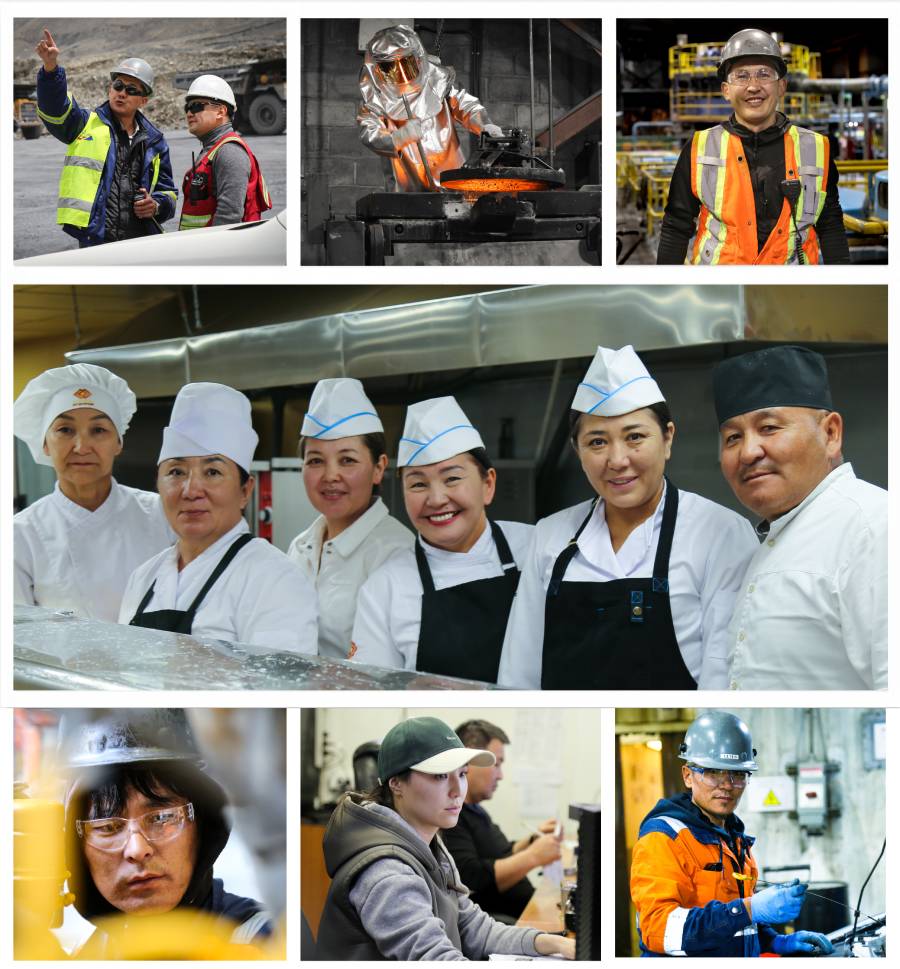Waste Management
We recycle 100 % of our scrap metal, waste oil and wood through local vendors
We manage all mine camp waste (population 1500) and associated activities.
Our operations produce several key waste streams. These include domestic, industrial, and hazardous wastes. Domestic wastes typically include food waste and paper materials from camp facilities and offices. Industrial wastes typically include plastic containers, wood, scrap metal, and tires. Our main hazardous wastes include cyanide packaging, batteries, medical waste, and expired reagents.
Our waste management facilities include a sanitary landfill for domestic wastes, primarily generated by the offices and accommodation camp. We also maintain separate lined landfill cells for oily rags and cyanide packaging. The per capita domestic waste generation at Kumtor is approximately 1.0 kg/person/day, which compares to approximately 2.0 kg/person/day in the United States in 2012 as reported by the US Environmental Protection Agency, and 5.6 kg/person/day for a comparable copper mining camp in Mongolia.
In response to recommendations provided by Kyrgyz government-sponsored commissions and other internal and independent external reviews,Kumtor has upgraded its waste management practices. This includes regular removal of scrap metal for recycling, improving the storage of waste tires and transport containers, and overhauling the waste oil collection system. We also phased out the use of incineration pits in 2011.
In addition, based on recommendations of international consultants we are implementing appropriate processes and systems in an ‘integrated solid waste management plan’ to minimize the amount of wastes generated and to more effectively manage the remaining waste stream components in accordance with good international industry practice.
Waste such as scrap metal, wood, and waste oil are provided to third parties. Waste materials with a potential to be recycled or reused, are temporarily stored on site if feasible recycling options become available. This includes waste tires. Currently, the local market for such services is under developed, however, in late 2014 a contract was signed with a local contractor that recycles tires using the pyrolysis method. In 2015, trial tire recycling will began to test this method and assess any potential environmental impacts.
Kumtor achieved 100 percent recycling of its scrap metal, batteries, waste oil and scrap timber through local vendors. We re-use scrap metal in the production of grinding balls. The local company Vulkan Plus produces different size steel balls used for ore grinding at the Mill. In 2014, Kumtor spent more than $3.1 million on the purchase of 25 mm diameter grinding balls. We also started purchasing trial portions of other size steel balls – 30, 40, 50, and 60 mm in diameter. It is noteworthy that the cooperation with Vulkan Plus began with only the purchase of small grinding balls, however in 2014 they were able to produce almost all sizes of balls needed at the mill and they now employ 120 people.


